Discover Big Shot
Big Shot

Big Shot
Author: Big Shot
Subscribed: 84Played: 1,016Subscribe
Share
© Big Shot
Description
If the walls of Kosher delis could speak, they would (schm)ooze invaluable wisdom and endless laughs. Harley Finkelstein (Shopify) and David Segal (DAVIDsTEA) are Jewish entrepreneurs influenced by the greats who came before them. But, they realized no one was archiving the best behind-the-scenes stories ever told. Before time was up, they set out on a passion project to preserve the memories, mishaps, and wins of the people who have seen it all. Big Shot tells the stories of the people that shaped an entire generation.
35 Episodes
Reverse
Lloyd Blankfein never chased a master plan. He focused on whatever was right in front of him, and those small decisions carried him from a Brooklyn housing project to leading Goldman Sachs through the worst financial crisis since the Great Depression.In this episode of Big Shot, Harley and David sit down with Lloyd to explore how that path unfolded. He talks about growing up in public housing and sharing a room with his grandmother, then suddenly finding himself at Harvard at 16, arriving in a suit because he had no idea what college culture looked like. He reflects on the dislocation of moving between the projects and the Ivy League and how he learned to navigate both worlds without ever feeling fully at home in either.Lloyd traces his shift from law to commodities, what he absorbed inside J. Aron, and how a crisis inside Goldman in the 1980s reshaped the firm and opened unexpected doors. He also shares what it was like to lead Goldman Sachs through 2008, why Warren Buffett’s support mattered at a defining moment, and what it took to keep the firm intact while the global financial system was breaking apart.It is a conversation about chance, focus, resilience, and the surprising places a life can go when you simply take the next step.—In This Episode We Cover:(00:00) Intro(05:15) Lloyd’s early days(07:05) How Lloyd graduated early (08:53) How Lloyd ended up at Harvard at 16 (10:56) A glimpse at just how humble his beginnings truly were(13:42) What it was like arriving at Harvard with no roadmap(19:37) Why top public-university talent can match (and sometimes surpass) the Ivies(20:27) What it was like moving between worlds (25:05) Why it took a long time to adjust to the burden of great wealth (27:11) What led Lloyd to law school(28:48) Lloyd’s approach of thinking one step ahead(30:35) Why Lloyd quit practicing law (35:16) Lloyd’s pivot to finance and initial rejection from Goldman Sachs(41:00) The J. Aron role that pulled Lloyd into Goldman (49:30) Inside the meritocracy of Goldman Sachs (53:08) How Lloyd ended up making partner at Goldman Sachs unexpectedly(1:02:30) Building trust across cultures (1:06:52) What changed after making partner (1:10:10) What sparked Lloyd’s retirement and renewed focus on learning(1:14:42) How the 1994 crisis set the stage for Lloyd to become CEO(1:22:00) Steering the firm through the 2008 financial crisis(1:28:22) The deal with Warren Buffett (1:37:58) Risk-taking vs. risk management (1:39:04) How anxiety fuels Lloyd’s risk management style (1:42:00) Lloyd’s biggest accomplishment at Goldman Sachs (1:46:21) A case for self-acceptance —Where To Find Lloyd Blankfein: • X: https://x.com/lloydblankfeinWhere To Find Big Shot: • Website: https://www.bigshot.show/• YouTube: https://www.youtube.com/@bigshotpodcast • TikTok: https://www.tiktok.com/@bigshotshow• Instagram: https://www.instagram.com/bigshotshow/ • Harley Finkelstein: https://twitter.com/harleyf • David Segal: https://twitter.com/tea_maverick• Production and Marketing: https://penname.co
Before OPI, nail color was just another product on the shelf. Suzi Weiss-Fischmann gave it personality and built a global brand in the process.Suzi believed nail color could be personal, playful, and expressive. She pushed the entire industry forward with smarter formulas, bold branding, and shade names that became pop culture, from “I’m Not Really a Waitress” to “Lincoln Park After Dark.” In just six years after its founding, OPI became the number one professional nail brand in America.In this episode of Big Shot, Harley and David sit down with Suzi to explore the instincts that fueled that rise. She talks about welcoming competition, using storytelling to make an emotional connection with customers, and expanding from salons into Walmart without losing trust or quality. Suzi also shares how her Jewish upbringing influenced her approach to business, from the drive that comes from starting with very little to the values of community and responsibility that guided every big decision.—In This Episode We Cover:(00:00) Intro(03:23) Growing up in communist Hungary with two Holocaust-survivor parents(05:54) How honoring faith brought Suzi’s mom back to Auschwitz(07:32) Why Suzi’s family fled Hungary (12:40) Suzi’s family’s transitional time in Israel (15:50) Where Suzi’s work ethic came from (18:53) Suzi’s adolescence in New York(23:27) Suzi’s move to Los Angeles (24:52) How a dental-supply store ended up experimenting with acrylic nails(29:37) OPI’s first trade show (32:36) Why competition is good(33:58) How Starbucks inspired Suzi to personalize nail polish (36:44) Why OPI named polishes after food and places and how the naming process worked(42:46) The time Suzi presented to Barbara Broccoli (45:27) The perks and bonuses OPI gave to their employees(48:19) How OPI fixed its lipstick mistake(52:43) How success affected Suzi(55:04) Entering Walmart and growing beyond the professional market(58:15) How Suzi’s divorce impacted the family business (1:01:33) The emotional impact of selling OPI(1:10:47) The Jewish work ethic(1:14:25) How to raise resilient, hardworking children—Where to find Suzi Weiss-Fischmann: • Instagram: https://www.instagram.com/1stladyofcolors• Facebook: https://www.facebook.com/1stladyofcolors• Website: https://1stladyofcolors.comWhere To Find Big Shot: • Website: https://www.bigshot.show/• YouTube: https://www.youtube.com/@bigshotpodcast • TikTok: https://www.tiktok.com/@bigshotshow• Instagram: https://www.instagram.com/bigshotshow/ • Harley Finkelstein: https://twitter.com/harleyf • David Segal: https://twitter.com/tea_maverick• Production and Marketing: https://penname.co
Every dealmaker in Hollywood has a story. Michael Ovitz has all of them.From Ghostbusters to Goodfellas, he packaged the films, brokered the talent, and rewrote the rules of power. What started as a rebellion inside William Morris became a $2 billion empire called CAA, and a playbook Silicon Valley still follows.In this episode of Big Shot, Harley and David sit down with Michael Ovitz, the legendary founder of Creative Artists Agency and the man who redefined power in Hollywood.From a working-class childhood to representing the world's biggest stars, Michael’s story is one of obsession, reinvention, and relentless ambition. He helped shape more than 300 films, including Jurassic Park, Ghostbusters, Tootsie, Stand by Me, and Goodfellas, while transforming how deals, talent, and ideas move through the entertainment industry.This episode is brought to you by Firebelly Tea. Use code bigshot15 for 15% off your order https://www.firebellytea.com/—In This Episode We Cover:(00:00) Intro(01:39) Michael’s early years (02:53) How Jewish mothers blend boundless belief with practical ambition(06:15) Michael’s advice to a failed businessman(15:44) How Marc Andreessen pulled Michael into Silicon Valley(21:00) How early anti-semitism made Eisner’s betrayal cut deeper(25:37) The Yahoo deal Eisner blocked (30:25) The story behind the Jurassic Park pitch and Spielberg’s involvement(34:11) The hit-to-miss ratio in Hollywood, and how Michael’s movies were almost always hits(36:15) How stagnation at William Morris drove Michael to build something new(43:58) Lessons from William Morris’s shortcomings that shaped CAA’s DNA(48:25) How Michael signed every member of Saturday Night Live (50:45) The story of Michael’s first client and first big stars(59:55) The story behind Janklow and Nesbit and what Michael likes about Silicon Valley(1:02:28) Michael’s true talent (1:06:40) How Michael and Andy Grove envisioned streaming before Hollywood was ready(1:10:20) The ripple effects of streaming across entertainment(1:17:02) Michael’s thesis about the success of Jews and Catholics—Where To Find Big Shot: • Website: https://www.bigshot.show/• YouTube: https://www.youtube.com/@bigshotpodcast • TikTok: https://www.tiktok.com/@bigshotshow• Instagram: https://www.instagram.com/bigshotshow/ • Harley Finkelstein: https://twitter.com/harleyf • David Segal: https://twitter.com/tea_maverick• Production and Marketing: https://penname.co
In this episode of Big Shot, Harley and David sit down with Stephen Ross—real estate titan, Miami Dolphins owner, and the visionary behind Hudson Yards, CityPlace, and more—for a rare look inside his extraordinary life.From growing up in a two-family house in Detroit to transforming New York’s Hudson Yards and Miami’s CityPlace, Stephen’s story is deeply shaped by the Jewish entrepreneurial legacy. Inspired by his grandfather, a Russian immigrant who built the largest independent oil refinery in the Midwest, and his uncle Max Fisher, a renowned businessman and philanthropist, Stephen saw early what was possible through grit, vision, and belief.He shares how getting fired set him on the path to starting his own business, why he’s now building infrastructure in Palm Beach County to create South Florida’s next “Silicon Valley,” and the stories behind owning the Miami Dolphins and bringing Formula 1 racing to Miami.We discuss the following: • How his grandfather built the largest independent oil refinery in the Midwest• Why getting fired was the best thing that ever happened to him• Why he believes New York is still the best place to start anything• Why he held onto CityPlace through years of losses—and how it finally paid off• His $1.5B asset sale before the 2008 crash• The infrastructure he’s bringing to Palm Beach County to build a new “Silicon Valley”• Why he sold 1.5 billion worth of assets before the financial crisis of 2008• The story behind purchasing the Miami Dolphins• Why he turned down a $10B offer for the Dolphins, Hard Rock Stadium, and F1• How daily school drop-offs helped Stephen build a lasting bond with his daughters• His perspective on Jewish excellence in entrepreneurship and philanthropy• His advice for young entrepreneurs • And much more!—In This Episode We Cover:(00:00) Intro(02:47) Stephen’s childhood in Detroit (05:15) Lessons and inspiration from his grandfather and uncle (17:00) Stephen’s rocky start in Florida and struggles in school(22:35) How Stephen got into the University of Michigan and became a good student (27:13) How getting fired sparked his first business(34:40) Early business goals and the fundraising hurdles that led to bootstrapping(41:10) Stephen’s diversification strategy (44:01) How Stephen found great people to work with (47:30) What Stephen loves about the real estate business (49:12) Why the 90s market wasn’t ready for CityPlace (54:12) The story behind Hudson Yards and the Olympic stadium that fell through (57:50) Why Stephen says his latest project will be the most impactful (1:04:15) How to maintain momentum while building large projects (1:08:32) What it was like buying the Miami Dolphins (1:17:05) Why he brought F1 to Miami (1:19:25) Stephen’s philanthropy and why giving back is important(1:23:40) What drives Jewish excellence in business and giving(1:26:00) How he built and maintained a relationship with his daughters(1:34:00) How he survived a tough time in the 90s (1:35:37) AI's impact on the future(1:37:10) Advice for young entrepreneurs and how he values relationships—Where To Find Big Shot: • Website: https://www.bigshot.show/• YouTube: https://www.youtube.com/@bigshotpodcast • TikTok: https://www.tiktok.com/@bigshotshow• Instagram: https://www.instagram.com/bigshotshow/ • Harley Finkelstein: https://twitter.com/harleyf • David Segal: https://twitter.com/tea_maverick• Production and Marketing: https://penname.co
What kind of man looks at 800 acres of mosquito-infested swampland and sees high-end apartments, a golf course, and a luxury shopping mall? In 1967, Don Soffer made the biggest bet of his life: transforming undeveloped wetlands into what would become Aventura, one of Florida’s most iconic and extravagant communities. In this episode of Big Shot, Harley and David sit down with the 92-year-old visionary to hear how it all happened—straight from the source.From convincing the Florida governor to back his development plan (after a well-timed flight to Tallahassee) to bringing in golf legend Robert Trent Jones to design a course, Don sold a dream that turned into a $4 billion reality. He built Turnberry resort, launched Aventura Mall, and packed them with celebrities—from Elton John to Madonna and John McEnroe.Decades before “influencer marketing” was a thing, Don was using star power to shape a city.In this episode, you’ll hear about:• The environmental pushback Don faced after buying swampland—and how he got the green light from the governor of Florida after chartering a jet and flying to Tallahassee• Don’s celebrity-packed playbook: how he used influencers before we even had a word for it• Don’s take on why Jewish people have become such successful entrepreneurs• Don’s definition of common sense—and approach to solving complex problems with simplicity• Why he says it’s a privilege to have a hard problem to solve• His advice for the next generation of Jewish entrepreneurs• And much more! —In This Episode We Cover:(00:00) Intro(02:07) How Don accidentally swallowed his dad’s glass eye(03:03) Don’s early work building shopping malls with his father(05:01) Why Don trusted his intuition and took a chance on developing swampland in Florida(09:04) How Don got the governor of Florida on board to green light his project(11:00) Early influencers: How Don leveraged the power of celebrities (14:25) Building Aventura Mall(19:27) Don’s common-sense approach (21:52) Don’s relationship with his father (24:00) Why Don says it’s terrible to run a family business(25:11) Don’s current roles and how he set his kids up (27:01) Don’s explanation for the success of the Jewish people (29:37) A dinner with Frank Sinatra (31:44) Advice for young Jewish entrepreneurs (33:37) Where Don got his confidence and conviction (35:06) How Don saved the Pittsburgh Mall after the excavator destroyed private property (37:50) Don’s thoughts on when to sell and when not to(40:05) Don’s friendship with Tony Bennett (41:21) How to cultivate strong business relationships(43:49) Don’s advice to future generations of Soffers (45:52) Why Don still thinks Florida is a good place to develop (46:42) Closing —Where To Find Big Shot: • Website: https://www.bigshot.show/• YouTube: https://www.youtube.com/@bigshotpodcast • TikTok: https://www.tiktok.com/@bigshotshow• Instagram: https://www.instagram.com/bigshotshow/ • Harley Finkelstein: https://twitter.com/harleyf • David Segal: https://twitter.com/tea_maverick• Production and Marketing: https://penname.co
Bobby Kotick built a $69 billion empire from scratch—and the story is even crazier than it sounds.In this episode of The Big Shot, we sit down with gaming’s ultimate entrepreneur. Bobby takes us from hustling snacks at baseball games to building one of the most iconic tech companies in the world: Activision Blizzard. Hear how he cold-called Nintendo, got investment from Steve Wynn on a private jet, took over a bankrupt video game company, and turned it into an empire that Microsoft bought for $69 billion.In this episode, you’ll hear about:Bobby’s early hustles: selling ashtrays, snacks, and party access in NYCDropping out of college after Steve Jobs told him toStarting a dorm room company with Howard MarksConvincing Steve Wynn to invest $300K after a chance meetingReviving Activision from bankruptcy using old IP and gritWhy Pitfall and River Raid were billion-dollar blueprintsHow Activision became the first American Nintendo licenseeThe Apple boardroom showdown with John SculleyTurning Activision into a media empire: Call of Duty, Candy Crush, and Guitar HeroWhat it felt like selling the company to Microsoft for $69 billionHis philosophy on leadership, loyalty, and building an enduring business—In This Episode We Cover:(00:00) Intro(03:19) Selling ashtrays at playdates: Bobby’s first hustles(06:39) Shadowing NYC real estate legends like Larry Silverstein(09:59) Dorm room hardware startup with Howard Marks(13:18) Inventing a typewriter-printer hack and launching via Byte magazine(16:38) Meeting Steve Jobs(19:58) Why Steve Jobs tells Bobby to drop out of school(23:17) Getting featured in Forbes and making his parents panic(26:37) The wild story of meeting Steve Wynn at a Texas cowboy gala(29:57) The legendary $300K check in the basement of a casino(33:16) Trying to sell to Apple (and the cigar moment with Sculley)(36:36) Licensing games for EA and learning to be scrappy(39:56) Black Monday, the Amiga, and a failed bid for Commodore(43:15) Buying 20% of Nintendo’s U.S. licensing agent(46:35) Discovering Activision buried inside a bankrupt company(49:55) Why Bobby wanted to bring Pitfall and River Raid back to life(53:14) The $400K move that changed gaming history(56:34) A childhood connection saves the Activision bankruptcy deal(59:54) Turning a bankrupt company into a profitable one in months(01:03:13) Raising $40M and going on an acquisition spree(01:06:33) How Bobby became the longest-serving tech CEO(01:09:53) The Toy Story game meeting that cemented Bobby’s role(01:13:12) Why Bobby never wanted to run a business that lost money(01:15:32) Reflecting on the Microsoft acquisition and legacy—Where To Find Bobby Kotick:• X: https://x.com/bobbykotick • LinkedIn: https://www.linkedin.com/in/bobbykotick/ —Where To Find Big Shot: • Website: https://www.bigshot.show/• YouTube: https://www.youtube.com/@bigshotpodcast • TikTok: https://www.tiktok.com/@bigshotshow• Instagram: https://www.instagram.com/bigshotshow/ • Harley Finkelstein: https://twitter.com/harleyf • David Segal: https://twitter.com/tea_maverick• Production and Marketing: https://penname.co
In today’s episode of Big Shot, we sit down with Mike Milken—legendary financier, philanthropist, and chairman of the Milken Institute. Mike has been a driving force in medical research, public health, and education for over five decades. Fortune called him “The Man Who Changed Medicine,” and Forbes listed him among “Visionaries Reimagining Our Children’s Future.” Mike’s financial innovations helped launch industries like cable TV, homebuilding, and cellular technology. Beyond finance, he has led major philanthropic efforts, including the Prostate Cancer Foundation, FasterCures, and the Milken Center for Advancing the American Dream, set to open this year. A signatory of the Giving Pledge, he has committed much of his wealth to driving global impact.In our conversation today, we talk about: • The childhood moments that shaped Mike’s curiosity and deep empathy• How Mike mastered mental math through Holocaust survivor, Jakow Trachtenberg's technique• How speech and debate sharpened Mike’s ability to communicate big ideas• The impact of the Watts riots on Mike’s career path • How market crashes in 1974 and 1987 provided opportunities for significant gains• Mike’s take on regulations and why he remains relentlessly optimistic about the free market• A glimpse into Mike’s philanthropic work in medicine and education• And much more! If you'd like to apply to be an executive producer, please complete the form here https://shorturl.at/xLQUW—In This Episode We Cover:(00:00) Intro(02:25) Why Mike has been involved in philanthropy from such a young age(09:57) Early experiences that shaped Mike’s radical empathy (19:03) How Mike learned mental math by using the Trachtenberg system (20:25) Mike’s journey to Berkeley and interest in the space program(28:40) How the Watts riots impacted Mike(33:40) The value of doing research, and what Mike learned about credit(38:10) Mike’s first investment bank job (44:50) How Mike was able to fund MCI at a time when AT&T had a monopoly (50:22) How the 1974 stock market crash impacted investment banking (57:50) The culture of outsiders dominating Hollywood—many of them Jewish(1:00:59) The stock market crash of 1987(1:03:58) Why the best investors are social scientists(1:06:15) The cultural shift that brought down big tobacco (1:09:20) Takeaways from Mike’s interview with Elon Musk(1:11:00) The JPL Mars Rover landing simulation and how free enterprise drives innovation(1:14:09) Milken Community School, and Mike’s emphasis on health and medical research(1:16:22) How views on nutrition and the microbiome have evolved(1:19:48) Mike’s advice: prioritize great people and be flexible (1:24:30) Private equity’s impact on business and the downside of family businesses(1:28:40) The Miken Center for Advancing the American Dream—Where To Find Mike Milken:• X: https://x.com/MilkenInstitute• Instagram: https://www.instagram.com/milkeninstitute/• Facebook: https://www.facebook.com/milkeninstitute/• Website: https://www.mikemilken.com/—Where To Find Big Shot: • Website: https://www.bigshot.show/• YouTube: https://www.youtube.com/@bigshotpodcast • TikTok: https://www.tiktok.com/@bigshotshow• Instagram: https://www.instagram.com/bigshotshow/ • Harley Finkelstein: https://twitter.com/harleyf • David Segal: https://twitter.com/tea_maverick• Production and Marketing: https://penname.co
In this episode of Big Shot, we’re thrilled to welcome the legendary marketing visionary Lynda Resnick. As the co-owner of The Wonderful Company, Lynda has shaped iconic brands like POM Wonderful, Wonderful Pistachios, and FIJI Water into household names.
With her husband, Stewart, Lynda also turned The Franklin Mint into a cultural sensation and brought fresh ideas to the floral industry with Teleflora’s innovative, long-lasting gifts.
Join us as Lynda takes us on a journey through her extraordinary life—from her early days as a child actor to her recent retirement and her hands-on efforts to make communities healthier and stronger through impactful philanthropic initiatives.
• How Lynda built a successful business at the age of 19
• Turning The Franklin Mint into a cultural icon and making millions with a deluxe Monopoly game
• The incredible story of branding POM Wonderful and FIJI Water
• How she sold $150 million worth of Monopoly
• Lynda’s commitment to quality
• Why she’s never raised any outside capital
• The childhood experience that shaped Lynda’s decision to always self-fund her philanthropy
• A life-changing epiphany inspired by philosopher Michael Sandel
• Lynda’s philanthropic work building healthier, safer communities for her workers
• The role Judaism plays in her life, her marriage, and advice for young people
• And more!
—
In This Episode We Cover:
(00:00) Intro
(02:35) Lynda’s early years in Pennsylvania
(05:14) Lynda Limited, the company Lynda founded at the age of 19
(08:37) Lynda’s activism and her involvement with the Pentagon Papers
(13:06) Thinking inside the box
(15:35) How Lynda reinvented the floral business with Teleflora
(19:00) Taking The Franklin Mint beyond coins
(24:00) The story of buying Jackie O’s pearls and making reproductions
(25:30) Why Lynda and her husband Stewart bought land in the Joaquin Valley
(28:58) How Lynda discovered the benefits of pomegranate
(30:20) Building the Pom Wonderful brand, including the packaging
(32:18) Early obstacles Pom Wonderful faced, including the court battle
(34:00) Why Lynda insisted on 100% pure pomegranate juice
(35:25) How Lynda was able to build brands around commodities
(39:11) The story about acquiring Fiji
(43:27) Lynda’s philanthropic philosophy
(45:10) Lynda’s epiphany inspired by Michael Sandel
(49:10) Lynda’s philanthropic work building better communities for her workers
(52:50) Lynda’s experiences with antisemitism, including rejection from The Campfire Girls
(54:43) The role Jewish culture plays in Lynda’s life
(56:07) Lynda’s time as a child actor—and an early lesson on always being prepared
(58:23) Lynda’s advice on staying true to your values
(59:10) How Lynda and Stewart have maintained their strong marriage and partnership
(1:02:40) Lynda’s thoughts on building lasting brands
(1:03:55) AI’s answer to what Lynda’s superpower is
(1:06:00) How “America’s Favorite Mom” got overshadowed by a golf game
(1:09:04) Why Lynda doesn’t have regrets
—
Where To Find Lynda Resnick:
• Website: https://www.wonderful.com/
• LinkedIn: https://www.linkedin.com/in/lynda-resnick-04103a101/
—
Where To Find Big Shot:
• Website: https://www.bigshot.show/
• YouTube: https://www.youtube.com/@bigshotpodcast
• TikTok: https://www.tiktok.com/@bigshotshow
• Instagram: https://www.instagram.com/bigshotshow/
• Harley Finkelstein: https://twitter.com/harleyf
• David Segal: https://twitter.com/tea_maverick
• Production and Marketing: https://penname.co
In this special episode of Big Shot, recorded live at the iconic Kennedy Center in Washington, D.C., we’re joined by Uri Levine, the co-founder of Waze. Uri is a visionary entrepreneur whose journey includes building Waze, the world’s largest community-based traffic and navigation app, which Google acquired for over $1 billion. Beyond Waze, Uri has co-founded several impactful startups like Moovit (acquired by Intel), FeeX, and Engie. He’s also the author of Fall in Love with the Problem, Not the Solution, a must-read guide for entrepreneurs.
In our conversation today, we cover:
• Lessons on failure and prioritization from Uri’s father
• A clever hack he used to pitch Waze with an incomplete product
• The cultural drive behind the Jewish ambition to create positive change
• The story of the many millionaires created by Waze’s acquisition
• And so much more!
A special thank you to ADL In Concert Against Hate. You can learn more here https://www.adl.org/adl-concert-against-hate-shines-light-heroes
—
In This Episode We Cover:
(00:00) Intro
(01:40) How Uri’s father taught him the importance of failure
(04:55) A story about prioritization
(06:59) Uri’s solution for fundraising with an incomplete product
(09:00) The ups and downs of the start-up journey
(11:04) Why Jewish people are drawn to entrepreneurship and making a positive impact
(12:58) The connection between the kibbutz community and entrepreneurship
(13:25) The Google acquisition of Waze
(13:58) The importance of keeping the main thing the main thing
(15:11) How tikkun olam inspires Uri’s entrepreneurial ventures
(16:48) Chutzpah and the Israeli experience
(17:40) How Uri continues to be inspired by his father
—
Where To Find Uri Levine:
• Website: https://urilevine.com/
• LinkedIn: https://www.linkedin.com/in/uri-levine/
• X: https://x.com/urilevine1
—
Where to Find ADL:
• Website: https://www.adl.org/
—
Where To Find Big Shot:
• Website: https://www.bigshot.show/
• YouTube: https://www.youtube.com/@bigshotpodcast
• TikTok: https://www.tiktok.com/@bigshotshow
• Instagram: https://www.instagram.com/bigshotshow/
• Harley Finkelstein: https://twitter.com/harleyf
• David Segal: https://twitter.com/tea_maverick
• Production and Marketing: https://penname.co
In today’s episode of Big Shot, we’re joined by Mindy Grossman, former CEO of Weight Watchers, who led the company’s transformation into a global wellness brand. Like many of our past guests, Mindy’s journey involves perseverance, bold decisions, and calculated risk-taking.
Mindy’s remarkable career began with a surprising choice—dropping out of college. She then worked up to executive roles at Polo Ralph Lauren, Nike, the Home Shopping Network, and Weight Watchers. In our conversation today, we cover:
Why Mindy dropped out of college and the value of risk-taking
Mindy’s impact on Nike as the most senior woman executive
The importance of rooting out toxic employees in your organization
How Mindy revived the culture and inspired employees at HSN
Taking Home Shopping Network public
Meeting Oprah, their arena tour, and keeping Weight Watchers alive during the pandemic
Mindy’s sales philosophy, move to private equity, thoughts on family and the Jewish success story, and much more!
—
In This Episode We Cover:
(00:00) Intro
(02:33) Mindy’s early years as an adopted child of working-class Jewish parents
(06:00) Why Mindy quit school and moved to New York
(09:00) Mindy’s first job as an Executive Assistant
(11:40) Mindy’s mantra, “passion, purpose, and impact”
(12:42) How Mindy landed her first sales role
(15:06) Bashert vs. self-determination
(15:44) The importance of calculated risk-taking
(17:26) Why Mindy left Tommy Hilfiger for Ralph Lauren
(20:40) The success of Mindy’s new category, main floor
(24:00) Why Mindy resigned from Ralph Lauren
(25:10) How Ralph Lauren retained Mindy by creating a new role for her
(26:50) Mindy’s time as CEO of Polo Jeans
(28:44) “Intrapreneurship” and the excitement of working with visionaries
(31:30) Founders and boards Mindy works with
(32:40) Mindy’s time at Nike and why she left Polo Jeans
(37:05) Mindy’s pitch to Barry Diller and her position at Home Shopping Network
(45:31) Reviving the culture at HSN
(50:10) The huge impact Mindy made on employee morale by buying new chairs
(52:18) The “There’s no place like HSN” campaign
(54:40) The magic moment that affects human behavior to get a sale
(57:11) Taking HSN public
(1:04:39) Meeting Oprah and joining Weight Watchers
(1:08:19) Mindy and Oprah’s arena tour
(1:09:10) How Mindy kept Weight Watchers customers connected during the pandemic
(1:12:25) Mindy’s shift to private equity and advising
(1:18:30) Mindy’s thoughts on Jewish success
(1:21:00) The death of her parents and the legacy of belief Mindy passes down
—
Where To Find Mindy Grossman:
• X: https://x.com/mindygrossman
• Instagram: https://www.instagram.com/mindygrossman
• LinkedIn: https://www.linkedin.com/in/mindy-grossman
—
Where To Find Big Shot:
• Website: https://www.bigshot.show/
• YouTube: https://www.youtube.com/@bigshotpodcast
• TikTok: https://www.tiktok.com/@bigshotshow
• Instagram: https://www.instagram.com/bigshotshow/
• Harley Finkelstein: https://twitter.com/harleyf
• David Segal: https://twitter.com/tea_maverick
• Production and Marketing: https://penname.co
In today’s episode of Big Shot, we’re joined by retail legend Mickey Drexler, whose transformative leadership reshaped some of the biggest names in fashion.
Over his 18-year tenure at The Gap, Mickey took the company from $400 million to $14 billion in revenue, revolutionizing casual wear and spotting a new retail opportunity that led to the creation of Old Navy.
His influence extends far beyond The Gap—he also founded Madewell, served on Apple’s board for over a decade, and now works alongside his son Alex on the growing success of Alex Mill. In our conversation today, we cover:
Mickey’s humble beginnings in a one-bedroom apartment in The Bronx
Mickey’s heuristic for hiring and what draws him to people
Mickey’s friendship with Steve Jobs and what it was like serving on each other’s boards
The importance of urgency and why a bad decision is better than indecision
How Mickey does market research, and his process behind both The Gap and Old Navy
Mickey’s thoughts on entrepreneurship, his family, and much more!
—
In This Episode We Cover:
(02:53) Welcome Mickey Drexler
(03:29) Mickey’s childhood in the Bronx
(12:40) The traits Mickey looks for in people he’s hiring
(14:56) Why Mickey values kindness and treating others fairly, regardless of their status
(16:40) Why the best training is doing the job
(18:40) Mickey’s high standards, obsession with data, and the importance of instinct
(28:39) How Steve Jobs persuaded Mickey to join Apple’s board
(32:33) What Mickey admired about Steve Jobs
(34:20) Why a bad decision is better than indecision
(36:34) What makes a great website
(39:43) Mickey’s process for helping The Gap standout
(46:32) Why Mickey calls the fashion business a commodity business
(47:20) How Dayton Hudson’s Target stores inspired Mickey to build Old Navy
(54:15) How Mickey got the name for Old Navy
(57:42) The challenges Mickey faced opening Old Navy
(1:00:20) How the meaning of value depends on the individual customer
(1:05:29) The call from Steve Jobs that marked an end to Mickey’s time at The Gap
(1:11:20) Mickey’s wife, Peggy’s background
(1:13:22) Mickey’s experience taking J. Crew private
(1:18:17) How Mickey balances work and family
(1:20:03) Mickey’s thoughts on Jewish entrepreneurship, especially in the fashion industry
(1:21:52) Mickey’s parting advice on learning entrepreneurship thoughts on school
(1:23:37) What David learned at school, and Harley’s learnings from Mickey
Where To Find Mickey Drexler
• X: https://twitter.com/millarddrexler
• Instagram: https://www.instagram.com/mickeydrexler
• LinkedIn: https://www.linkedin.com/in/millard-mickey-drexler-1b00a9269/
Where To Find Big Shot:
• Website: https://www.bigshot.show/
• YouTube: https://www.youtube.com/@bigshotpodcast
• TikTok: https://www.tiktok.com/@bigshotshow
• Instagram: https://www.instagram.com/bigshotshow/
• Harley Finkelstein: https://twitter.com/harleyf
• David Segal: https://twitter.com/tea_maverick
• Production and Marketing: https://penname.co
In this special live episode of Big Shot, recorded at StartupFest, we are excited to welcome Heather Reisman, the trailblazing entrepreneur behind Indigo Books & Music. Heather's remarkable journey began as a single mother learning to code to support her children.
Fueled by grit, a bit of luck, and a talent for connecting with extraordinary people, Heather built Indigo into Canada’s largest bookseller. However, Heather's ambitions extend beyond her role as founder and CEO. She is also a devoted wife, mother, grandmother, and philanthropist, having contributed $100 million to the University of Toronto and supported various causes through her foundation, HSEG, which aids the education of lone soldiers after their service in the IDF. In today’s conversation, we talk about:
Heather’s childhood and how her working mother influenced her
The importance of curiosity and how this value has served Heather in entrepreneurship
Heather’s first startup, Paradigm
Heather’s work at Cott and how she broke out of a mental funk after leaving
Raising $25 million and founding Indigo
Founding Kobo eReaders and selling to Rakuten for $315 million
Heather’s life beyond work and plans for increasing Canada’s literacy
—
In This Episode We Cover:
(05:08) Welcome Heather Reisman
(05:35) What it was like growing up in the Reisman household
(10:26) Heather’s experience working at her mother’s retail store
(11:15) Heather’s early passion for books
(12:44) Why Curiosity is the key to everything
(14:00) Heather’s coding journey as a single mom
(16:00) Why Heather quit her job after an undeserved demotion
(17:00) Heather’s time working at a consulting firm
(19:00) Co-founding Paradigm
(19:56) Heather’s thoughts on change and why she left consulting
(24:29) Why Heather left Cott
(26:55) Heather’s depression and the book that kickstarted the next chapter of her life
(20:24) The Borders deal that never worked out
(33:00) Raising $25 million and founding Indigo
(37:19) The story of acquiring Chapters
(39:45) Integrating Chapters
(42:13) How the ‘New Coke” failure inspired Heather to keep Chapters and Indigo separate
(43:20) Why Heather founded an e-reader company called Kobo
(48:47) Selling Kobo to Rakuten for $315 million
(50:19) The power of Heather’s Picks
(52:13) Taking Indigo private
(53:00) Heather’s literacy goals and the importance of curation
(57:00) How Heather balances work and family life
Where To Find Heather Reisman:
X: https://x.com/heatherreisman
Instagram: https://www.instagram.com/heatherreisman
Facebook: https://www.facebook.com/hreisman
LinkedIn: https://www.linkedin.com/in/heather-reisman-3bab2319
TikTok: https://www.tiktok.com/discover/heather-reisman-indigo
Where To Find Big Shot:
Website: https://www.bigshot.show/
YouTube: https://www.youtube.com/@bigshotpodcast
TikTok: https://www.tiktok.com/@bigshotshow
Instagram: https://www.instagram.com/bigshotshow/
Harley Finkelstein: https://twitter.com/harleyf
David Segal: https://twitter.com/tea_maverick
Production and Marketing: https://penname.co
Harley Finkelstein and David Segal are back with Season 3 of Big Shot! Today, we chat with beauty industry icon Bobbi Brown. Known for her work as a makeup artist, Bobbi’s expertise has been showcased on the covers of leading magazines, including Cosmopolitan, Allure, Mademoiselle, and Teen. She’s the author of nine beauty books, with five achieving bestseller status.
In 1991, Bobbi founded Bobbi Brown Cosmetics, which Estée Lauder acquired for $74.5 million four years later. Bobbi had a 25-year non-compete with Estée Lauder, and as soon as that expired, she launched her latest company, a clean beauty brand called Jones Road.
In our conversation, we discuss the following:
How chutzpah and optimism landed Bobbi her first Vogue cover
How Bobbi developed her first lipstick and the original ten that became the brand’s foundation.
How organic networking was a big part of Bobbi’s success
The Estée Lauder acquisition of Bobbi Brown Cosmetics and Bobbi’s friendship with Leonard Lauder
How Bobbi prioritized motherhood over work
Life after the non-compete: Her new partnerships and Jones Road
And so much more
—
In This Episode We Cover:
(04:28) How Bobbi got started by cold-calling models and agencies
(10:30) How Bobbi learned entrepreneurship skills at Emerson
(12:52) Bobbi’s first lipstick and the beginnings of her makeup empire
(17:39) The Bergdorf Goodman deal that almost fell apart
(21:30) A chance encounter in an elevator that led Bobbi to her second chemist
(22:10) Meeting Jeff Zucker’s grandmother and landing a regular spot on The Today Show
(26:15) Trailblazing the natural makeup movement
(34:10) Bobbi’s meeting with Leonard Lauder of Estée Lauder
(35:59) How Bobbi was able to prioritize her kids
(39:20) The sale to Estée Lauder
(42:54) How Bobbi celebrated and shared her wealth with her family
(43:45) The first freestanding store, and how Leonard Lauder supported Bobbi
(47:00) The decline of Bobbi’s relationship with Estée Lauder that led to her leaving
(51:30) The Just Bobbi curated collection at Lord and Taylor
(53:30) How Bobbi moved on from the drama at Estée Lauder
(1:00:01) Launching Jones Road
(1:08:55) Miracle Balm’s instant popularity
(1:10:20) Bobbi’s response to a TikTok influencer trashing her foundation
(1:13:43) Bobbi’s thoughts on selling her new company
(1:14:45) Bobbi’s partnership with her son, Cody
(1:17:03) New learnings at Jones Road
(1:18:28) Bobbi’s thoughts on chutzpah
(1:19:25) Bobbi’s perspective on health and longevity
(1:20:36) What being Jewish means to Bobbi
(1:23:15) The secret to Bobbi’s successful marriage and partnership
—
Where to find Bobbi Brown:
X: https://x.com/justbobbibrown
Instagram: https://www.instagram.com/justbobbidotcom
Facebook: https://www.facebook.com/JustBobbiDotCom
TikTok: https://www.tiktok.com/@justbobbibrown
Where To Find Big Shot:
Website: https://www.bigshot.show/
YouTube: https://www.youtube.com/@bigshotpodcast
TikTok: https://www.tiktok.com/@bigshotshow
Instagram: https://www.instagram.com/bigshotshow/
Harley Finkelstein: https://twitter.com/harleyf
David Segal: https://twitter.com/tea_maverick
Production and Marketing: https://penname.co
In this episode of Big Shot, we sit down with the Chairman of the Board and Chief Executive Officer of G-III Apparel Group, Morris Goldfarb. Morris took over running his father’s company at the age of 24. His journey is deeply rooted in the inspiring legacy of his father, Aron Goldfarb, a Holocaust survivor who immigrated to the U.S. and founded G-III in 1956. Morris has transformed the company from a small women's leather outerwear business into a global fashion powerhouse, managing brands like DKNY, Calvin Klein, and Tommy Hilfiger. In our conversation today, talk about:
The emotional impact of being the son of a Holocaust survivor
Morris’s strategies for growing the family business and taking it public
The setbacks G-III faced in 1995 and how Morris was able to successfully pivot the business
Brand acquisitions and licensing that became the bread and butter of G-III
Morris’s life outside work, including family and philanthropic accomplishments
And much more!
—
In This Episode We Cover:
(01:50) Morris’s childhood in Israel and New York
(04:42) Morris’s dad, Aron Goldfarb’s memoir about the Holocaust, Maybe You Will Survive
(08:54) How Morris was affected by the Holocaust survival stories of his family and friends
(10:20) Aron Goldfarb’s clothing business and why he wanted Morris to get a city job
(12:36) How Morris took over the family business at the age of 24
(14:30) Morris’s ambition and early years expanding G&N Sportswear
(16:05) Morris’s consulting and building factories in South Korea
(19:59) G-III’s journey to going public
(22:40) Why Morris had to pivot the business in 1995 and move towards licensing
(31:50) The current state of G-III
(32:52) How Morris fought nepotism working at his father’s company
(34:17) Acquisitions that grew G-III
(38:18) An explanation of how licensing works at G-III
(40:18) The pitfalls of direct to consumer businesses
(42:26) Morris’s thoughts on licensing vs. owning brands
(43:24) Morris’s partnership with Carl Banks
(46:30) Morris’s family life and what it’s like working with his son
(50:53) Why G-III is not a great fit for most emerging brands
(52:50) What made Morris finally feel like he’d made it
(54:29) What chutzpah means to Morris
(54:55) Morris’s philosophy on giving back and why he built a Jewish cemetery in Poland
(59:18) Why Jews have made so many contributions to business, science, and academia
—
Where to find Morris Goldfarb:
Website: https://ir.giii.com/management/morris-goldfarb
Where To Find Big Shot:
Website: https://www.bigshot.show/
YouTube: https://www.youtube.com/@bigshotpodcast
TikTok: https://www.tiktok.com/@bigshotshow
Instagram: https://www.instagram.com/bigshotshow/
Harley Finkelstein: https://twitter.com/harleyf
David Segal: https://twitter.com/tea_maverick
Production and Marketing: https://penname.co
When you think about a "convenience store manager," you probably don't imagine a future billionaire. But that's exactly the path Ron Shaich took from humble beginners selling Tollhouse cookies to a $7.5 billion restaurant empire. In this episode of Big Shot, Harley Finkelstein and David Segal welcome Shaich, the founder of Panera Bread, who shares his incredible journey from a nonprofit convenience store to his pivotal decision to create Panera Bread. Ron is a master at finding the trends others can't see before becoming popular. He shares the challenges and successes that defined his path, highlighting the power of adaptability and innovation. And breaks down the difference between risk-taking and risk-avoidance, and how leaning into one over the other can lead to incredible success.
The episode is filled with incredible takeaways, including:
How Ron has the best-performing restaurant stock of all time (44x return compared to the S&P 500)
Why his first store in college was a spite store
What he learned from his IPO with Au Bon Pain
How he created an entirely new category, “Fast Casual”
And so much more
—
In This Episode We Cover:
(02:35) Ron’s early years growing up in New Jersey in a family of left-wing political activists
(07:50) Ron’s gap year working for a congressman
(09:45) How a false accusation of shoplifting prompted Ron to open a convenience store
(14:50) How Ron fell in love with business and his time at Harvard Business School
(19:28) The rewards of entrepreneurship
(20:40) What business has in common with politics
(23:22) How Ron made money selling flea collars in college
(26:00) Why Ron got his inheritance early
(27:35) Ron’s work in DC as President of Targeting Systems
(29:08) How Ron opened The Cookie Jar in Boston
(31:43) Ron’s partnership with Au Bon Pain’s founder, Louis Kane
(39:44) Ron and Louis’s exceptional friendship and partnership
(42:25) The importance of empathy and the insights that it brought Ron
(48:35) How Ron created a brand new category, bakery cafe
(51:50) How Ron felt right before Au Bon Pain’s IPO
(53:00) The downsides of going public
(54:50) Ron’s means, ends, and by-products framework
(57:20) What Ron learned from watching his parents face death
(1:00:13) How Ron organized his life
(1:03:35) Ron’s purchase of the St. Louis Bread Company
(1:07:28) How Ron’s trend studying led him to fast casual dining
(1:13:52) The transformation of St. Louis Bread into Panera
(1:15:33) Why Ron decided to sell Au Bon Pain to focus on Panera
(1:20:25) The rapid growth stage of Panera
(1:22:51) Ron’s philanthropy with No Labels and Panera Cares
(1:25:14) The painful journey of transforming Panera
(1:32:09) Thoughts on success, chutzpah, and the Jewish entrepreneurial spirit
(1:34:28) Why entrepreneurs are risk avoiders
(1:35:34) Why Ron sees building organizations as a way to impact the world positively
(1:37:44) Ron’s investment company, Act 3, and the problem with short-termism
—
Where to find Ron Shaich:
Website: https://www.ronshaich.com/
LinkedIn: https://www.linkedin.com/in/ronshaich/
X: https://x.com/shaich
Facebook: https://www.facebook.com/shaich
Where To Find Big Shot:
Website: https://www.bigshot.show/
YouTube: https://www.youtube.com/@bigshotpodcast
TikTok: https://www.tiktok.com/@bigshotshow
Instagram: https://www.instagram.com/bigshotshow/
Harley Finkelstein: https://twitter.com/harleyf
David Segal: https://twitter.com/tea_maverick
Production and Marketing: https://penname.co
In this episode of Big Shot, we sit down with Wall Street titan Leon Cooperman. The son of working-class Polish immigrants and a first-generation college graduate, Leon founded Omega Advisors after a successful 25-year career at Goldman Sachs, where he rose to become Chairman and CEO of Goldman Sachs Asset Management.
Despite being one of the richest men on the planet, Leon lives modestly, even still changing his own lightbulbs.
In this fascinating conversation, he shares insights on achieving success in business, marriage, and family, along with his philosophy on giving back, inspired by the belief that "a man's net worth is measured not by what he earns but by what he gives away." Leon even gets political and shares his thoughts on former President Trump. We can’t wait for you to listen.
If you'd like to apply to be an executive producer, please complete the form here https://shorturl.at/xLQUW
In This Episode We Cover:
(05:34) Leon’s background growing up in the Bronx
(07:36) Why Leon quit dental school and switched to economics
(09:28) How Leon got 16 job offers after graduating and why he went with Goldman Sachs
(11:00) Why Goldman Sachs was so successful
(12:35) How Leon’s father reacted to him dropping out of dental school
(13:25) Leon’s promotion to partner at Goldman Sachs
(15:30) Why Lee says he never learned how to live rich
(17:58) Leon’s philanthropy and why it’s so important to him
(19:51) Leon’s thoughts on protestors at Columbia
(25:58) Why there are many significant contributions to humanity made by the Jewish people
(29:30) Why Leon left Goldman Sachs and founded Omega
(33:10) The rogue employee that caused Leon to be accused of insider trading
(36:20) Why Leon considers Henry Singleton brilliant
(42:52) What Leon loves to do
(43:57) Leon’s hands-on approach to philanthropy
(46:17) Why Leon went to Xerox out of college(and why he left to go back to school)
(50:15) Leon’s successful marriage and his big takeaway
(51:45) Why Leon stuck it out with Goldman Sachs for so long
(53:25) Lessons from William Hurt and Teddy Roosevelt
(54:40) Why Leon changes his own lightbulbs in spite of his arthritis
(55:37) How Leon raised his kids to be self-starters
(57:00) David Rubenstein’s recent purchase of the Orioles
(57:57) Leon’s 40 businesses
(59:25) What chutzpah means to Leon and the importance of respect
(1:00:15) Leon’s thoughts on capitalism as an equalizer
(1:04:41) Leon’s political views
(1:06:02) Why Leon would never vote for Trump
(1:07:01) Leon’s father and the impact he had on him
(1:09:10) How Leon chooses institutions to donate to
(1:10:45) How Leon handles setbacks
(1:12:35) Why Leon thinks the country isn’t at its best
(1:13:40) Leon’s thoughts on AI
(1:14:22) Leon’s mother and her impact on him
(1:15:36) Why it’s common for Jewish people to have a fallback plan
(1:17:35) Advice on investing
(1:21:05) How Leon evaluates companies
—
Where to find Leon Cooperman:
LinkedIn: https://www.linkedin.com/in/leon-cooperman-8ab35024/
Book: From The Bronx To Wall Street: My Fifty Years in Finance and Philanthropy: https://www.amazon.com/Bronx-Wall-Street-Finance-Philanthropy/dp/1642256226
Where To Find Big Shot:
Website: https://www.bigshot.show/
YouTube: https://www.youtube.com/@bigshotpodcast
TikTok: https://www.tiktok.com/@bigshotshow
Instagram: https://www.instagram.com/bigshotshow/
Harley Finkelstein: https://twitter.com/harleyf
David Segal: https://twitter.com/tea_maverick
Production and Marketing: https://penname.co
In this episode of Big Shot, we sit down with another legendary real estate developer, Larry Silverstein. Best known for the 99-year lease he signed for the World Trade Center, just six weeks before 9/11, Larry’s story is one of persistence and strategic partnerships—and a whole lot of chutzpah. He shares with us today how he leveraged partnerships, refurbished properties on a shoestring budget and built a business that today is valued at over $10 billion. As with many successful Jewish entrepreneurs, family is at the center of it all, and Larry speaks with extreme gratitude about his children and wife Klara. You won’t want to miss hearing about how Larry very narrowly missed being at ground zero during 9/11, and how his wife supported his efforts in rebuilding the World Trade Center.
If you'd like to apply to be an executive producer, please complete the form here https://shorturl.at/xLQUW
In This Episode We Cover:
(03:19) How Larry got established in real estate with no money
(09:59) Why Larry turned down a 100k profit on his first contract
(12:51) How Larry leveraged investors to land million-dollar properties
(14:22) The low-budget, resourceful way Larry’s team refurbished buildings
(16:31) How Larry collaborated with competitors in purchasing 711 Fifth Avenue
(24:42) Coca-Cola’s purchase of 711 Fifth Avenue
(26:43) Why Larry worked with partners
(27:33) The beginning of Larry’s journey toward buying the World Trade Center
(35:22) How Silverstein Properties built their own electric plant
(45:28) The drama of signing Salomon Brothers
(52:44) Larry’s accident and acquiring the World Trade Center
(58:45) Why Larry was absent from the building on 9/11
(1:00:20) How Larry decided to rebuild the World Trade Center
(1:04:21) When Larry knew he made it
(1:06:28) Larry’s philanthropic efforts paying the tuition of medical school students
—
Referenced:
Harry Helmsley: https://en.wikipedia.org/wiki/Harry_Helmsley
711 Fifth Avenue Purchased from Columbia Pictures: https://www.nytimes.com/1978/04/23/archives/realty-news-fifth-avenue-third-avenue-executives-named.html
George Kaufman’s obituary: https://www.nytimes.com/2018/02/26/obituaries/george-s-kaufman-who-revived-astoria-studios-dies-at-89.html
Peter Feinberg obituary: https://www.nytimes.com/1990/03/15/obituaries/peter-i-feinberg-79-real-estate-developer.html
Port Authority to lease World Trade Center to Silverstein Properties: https://www.panynj.gov/port-authority/en/press-room/press-release-archives/2001_press_releases/port_authority_toleaseworldtradecentertosilversteinpropertiesinc.html
World Trade Center history: https://www.911memorial.org/learn/resources/digital-exhibitions/world-trade-center-history
Ed Koch: https://en.wikipedia.org/wiki/Ed_Koch
Salomon Brothers: https://en.wikipedia.org/wiki/Salomon_Brothers
Mortimer Zuckerman: https://en.wikipedia.org/wiki/Mortimer_Zuckerman
Salomon Will Move to the World Trade Center: https://www.nytimes.com/1988/11/29/nyregion/salomon-will-move-to-trade-center.html
The Collapse of Drexel Burnham Lambert: https://www.nytimes.com/1990/02/14/business/the-collapse-of-drexel-burnham-lambert-key-events-for-drexel-burnham-lambert.html
NYU School of Medicine Offers Full-Tuition Scholarships to All New & Current Medical Students: https://nyulangone.org/news/nyu-school-medicine-offers-full-tuition-scholarships-all-new-current-medical-students
—
Where to find Larry Silverstein:
Silverstein Properties: https://www.silversteinproperties.com/
The Rising: The Twenty-Year Battle to Rebuild the World Trade Center: https://www.amazon.com/Rising-Twenty-Year-Battle-Rebuild-Center/dp/0525658963
Where To Find Big Shot:
Website: https://www.bigshot.show/
YouTube: https://www.youtube.com/@bigshotpodcast
TikTok: https://www.tiktok.com/@bigshotshow
Instagram: https://www.instagram.com/bigshotshow/
Harley Finkelstein: https://twitter.com/harleyf
David Segal: https://twitter.com/tea_maverick
Production and Marketing: https://penname.co
In this episode of Big Shot, we're honored to host business mogul Peter May. But his path to managing more than $7 billion is not what you might expect. What started as a career as an accountant at the prestigious KPMG quickly became something much different once Peter crossed paths with Nelson Peltz, igniting a dynamic partnership that spanned decades. Together, they founded Triarc Companies and pioneered innovative funding strategies, revitalizing numerous struggling businesses. They eventually sold the company and founded Trian Partners, a multi-billion dollar investment firm. Peter's commitment to philanthropy extends beyond financial contributions, as he invests his time and expertise. Notably, his impactful work with Mount Sinai Health Systems and Operation Exodus showcases his dedication to making a difference. Join us as Peter generously imparts invaluable insights and practical wisdom applicable to all aspects of life.
In This Episode We Cover:
(07:28) What it was like growing up during the Cold War in Long Island
(12:12) How his father was a great role model
(14:33) Peter’s time at The University of Chicago
(16:25) How Peter was inspired by his father’s saying, “Do more than what’s expected of you”
(22:24) The Jewish value of education
(24:53) How Peter was able to avoid being drafted to Vietnam
(30:59) Getting started as an accountant at KPMG
(32:40) How Peter met Nelson Peltz
(34:24) The importance of adding value
(36:11) The origins of Home Depot
(38:16) How Peter and Nelson Peltz went into business together
(41:00) When Peter and Nelson took their company public
(44:25) What happened after Peter and Nelson sold Flagstaff foods
(49:20) Peter and Nelson’s funding strategy emerges
(50:42) How MPM group consulting got its start
(51:57) What constructive capitalism is
(54:10) How Peter and Nelson bought Triangle Industries
(1:00:29) How Peter and Nelson transformed Triangle and made it profitable
(1:03:18) The purchase of America Can and National Can
(1:17:03) The meaning of Nelson’s phrase “I’d rather be rich than right”
(1:18:53) Why Peter doesn’t look back much
(1:20:14) Why chutzpah is so quintessential to the Jewish entrepreneurial experience
(1:22:23) Why Peter doesn’t feel like he’s made it still
(1:23:30) About “engaged philanthropy” and how Peter helped turn around Mount Sinai Health
(1:30:15) Peter’s advice to the next generation
(1:33:26) About Operation Exodus
(1:36:33) Peter’s legacy—
Referenced:
Green tea benefits: https://www.firebellytea.com/blogs/all/green-tea-benefits
Firebelly Tea: https://www.firebellytea.com/
The University of Chicago: https://www.uchicago.edu/en
Pogroms: https://encyclopedia.ushmm.org/content/en/article/pogroms
Nelson Peltz: https://www.forbes.com/profile/nelson-peltz/
Arthur Anderson: https://en.wikipedia.org/wiki/Arthur_Andersen
KPMG: https://kpmg.com/
Emerson Radio: https://www.emersonradio.com/
Bernard Marcus: https://en.wikipedia.org/wiki/Bernard_Marcus
Mike Milken: https://en.wikipedia.org/wiki/Michael_Milken
Saul Steinberg: https://en.wikipedia.org/wiki/Saul_Steinberg
Victor Posner: https://en.wikipedia.org/wiki/Victor_Posner
Alcoa: https://www.alcoa.com/global/en/home/
Mount Sinai Health System: https://www.mountsinai.org/
Engaged philanthropy: https://engagedgiving.org/philosophy
Operation Exodus: https://operationexodususa.org/
—
Where to find Peter May:
Mount Sinai Health: https://www.mountsinai.org/about/board-leadership/peter-may
Wendy’s: https://www.wendys.com/who-we-are/board-directors/peter-may
Where To Find Big Shot:
Website: https://www.bigshot.show/
YouTube: https://www.youtube.com/@bigshotpodcast
TikTok: https://www.tiktok.com/@bigshotshow
Instagram: https://www.instagram.com/bigshotshow/
Harley Finkelstein: https://twitter.com/harleyf
David Segal: https://twitter.com/tea_maverick
Production and Marketing: https://penname.co
In this episode of Big Shot, we're thrilled to welcome the incredible David Rubenstein! As a co-founder of The Carlyle Group, one of the globe's top private equity firms, David's journey from a Baltimore kid with big dreams to a presidential advisor and business mogul is truly inspiring. Join us, as David reveals how he overcame rejection after President Carter lost his re-election and pivoted into private equity. Learn why he's dedicated to giving back through initiatives like the Giving Pledge, and get ready for some thought-provoking insights, including why hiring geniuses might not be the best idea and tips on avoiding spoiling your kids.
In This Episode We Cover:
(03:40) Welcome David Rubenstein
(04:50) Why David and Harley both maintain their bar memberships
(05:37) Why education is important to the Jewish people
(07:30) David’s upbringing in Baltimore
(10:00) The difficulties that come with raising children when you’re wealthy
(11:30) David’s relatively laid-back parents
(13:34) The Jewish youth group that fueled David’s drive for more
(14:15) David’s first job out of law school
(15:25) How David became an advisor to President Jimmy Carter
(16:42) The years of struggle after Jimmy Carter failed to get re-elected
(20:41) How the Carlyle Group got their start
(24:36) Carlyle’s “bear hug” on Chichi’s
(27:22) David’s growth strategy for Carlyle focusing on diversification and globalization
(31:30) David’s mom’s philanthropy
(34:14) What the Giving Pledge is
(36:43) David’s philosophy on philanthropy
(39:33) An explanation of the Magna Carta, its failure, and the anti-semitism of the day
(42:22) David’s focus on patriotic philanthropy
(46:47) How David became the fundraiser for Carlyle
(47:56) How Carlyle was able to build a lasting company
(49:27) Why reasonably intelligent people make better employees than geniuses
(50:04) The cultural values that make Jewish people successful and want to give back
(54:10) Antisemitism in the US and Europe
(54:28) Why David still doesn’t think he’s made it
(55:33) Tips on raising kids and the three ways to influence people as a leader
—
Referenced:
David Rubenstein on Patriotic Philanthropy: https://www.whitehousehistory.org/the-white-house-1600-sessions/david-rubenstein-on-patriotic-philanthropy
Shelley v. Kraemer: https://en.wikipedia.org/wiki/Shelley_v._Kraemer
Virtual Jewish World: Baltimore, Maryland: https://www.jewishvirtuallibrary.org/baltimore-jewish-history-tour#google_vignette
Paul, Weiss, Rifkind, Wharton & Garrison LLP: https://www.paulweiss.com/
Ted Sorensen: https://en.wikipedia.org/wiki/Ted_Sorensen
William Simon: https://www.philanthropyroundtable.org/hall-of-fame/william-simon/
G. William Miller: https://home.treasury.gov/about/history/prior-secretaries/g-william-miller-1979-1981
Edward J. Mathias: https://www.carlyle.com/corporate-overview/operating-executives-advisors/edward-j-mathias
T. Rowe Price: https://www.troweprice.com/
The Mellon family: https://www.forbes.com/profile/mellon/?sh=21c04b3f6c8b
Greenmailing: https://www.investopedia.com/terms/g/greenmail.
Mike Milken: https://milkeninstitute.org/staff/mike-milken
Frank Carlucci: https://en.wikipedia.org/wiki/Frank_Carlucci
John Major: https://www.britannica.com/biography/John-Major
Why are there so many Jewish Nobel winners?: https://www.thejc.com/lets-talk/why-are-there-so-many-jewish-nobel-winners-ctycke48#
—
Where to find David Rubenstein
X: https://twitter.com/DM_Rubenstein
Website: https://davidrubenstein.com/
Where To Find Big Shot:
Website: https://www.bigshot.show/
YouTube: https://www.youtube.com/@bigshotpodcast
TikTok: https://www.tiktok.com/@bigshotshow
Instagram: https://www.instagram.com/bigshotshow/
Harley Finkelstein: https://twitter.com/harleyf
David Segal: https://twitter.com/tea_maverick
Production and Marketing: https://penname.co
We’re back with Season 2 of Big Shot! In this episode of Big Shot, we're joined by Fran Weissler, a seven-time Tony award-winning producer and one-half of the dynamic duo behind Chicago, the longest-running American musical. Fran's journey epitomizes Jewish chutzpah, marked by bold choices—from leaving her first marriage to making decisive moves in her Broadway career. Today, Fran shares with us stories from her journey, including breaking into Broadway at the age of 50 and producing Othello with a star-studded cast featuring James Earl Jones and Christopher Plummer. We also talk about her successful marriage and business partnership of 55 years, how Fran navigated challenges working with chauvinists and demanding actors, and how she finally started to slow down a little bit at the age of 90.
—
In This Episode We Cover:
(02:35) Fran’s childhood and life before Broadway
(07:04) Why Fran decided to end her first marriage
(08:59) How Fran met Barry and got started in theater
(15:02) The early days of NAMCO producing plays for Catholic schools
(19:00) Fran’s first Broadway show, Othello, with James Earl Jones
(21:52) How Fran got Christopher Plummer to play Iago
(31:34) What it was like to win a Tony for Othello
(33:33) How firing Peter Coe accelerated Fran’s career as a producer
(45:30) Fran’s chutzpah
(48:20) How Fran and Barry balance each other out as a team
(51:14) How Fran handled working with the chauvinist Anthony Quinn
(1:00:15) A compromise made with Kathleen Turner
(1:03:26) The Queen of Broadway: Fran’s identity separate from Barry
(1:05:28) Fran and Barry’s rare, beautiful marriage
(1:09:32) How Fran and Barry revived Chicago and made the longest-running American show
(1:19:11) Fran’s advice for aspiring producers
—
Referenced:
NAMCO: https://www.namcousa.com/
Othello at the Winter Garden Theater (1982): https://playbill.com/productions/othellobroadway-winter-garden-theatre-1982
James Earl Jones: https://www.imdb.com/name/nm0000469/
Christopher Plummer: https://www.imdb.com/name/nm0001626/
Lucy Kroll: https://en.wikipedia.org/wiki/Lucy_Kroll
Stratford Festival: https://www.stratfordfestival.ca/
Lou Pitt: https://www.imdb.com/name/nm1018725/
Zoe Caldwell: https://www.imdb.com/name/nm0129807/
Robert Whitehead: https://www.imdb.com/name/nm0925723/
Medea 1982 playbill: https://playbill.com/production/medea-cort-theatre-vault-0000003496
Chicago: https://chicagothemusical.com/
Phantom of the Opera: https://us.thephantomoftheopera.com/
When Kathleen Turner Brought Maggie the Cat Back to Broadway: https://playbill.com/article/when-kathleen-turner-brought-maggie-the-cat-back-to-broadway
Zorba the Greek 1983 playbill with Anthony Quinn: https://playbill.com/production/zorba-broadway-theatre-vault-0000012262
Encores: https://en.wikipedia.org/wiki/Encores
The economics of Broadway shows: https://thehustle.co/the-economics-of-broadway-shows/
—
Where to find Fran Weissler:
Website: https://www.namcousa.com/
Where To Find Big Shot:
Website: https://www.bigshot.show/
YouTube: https://www.youtube.com/@bigshotpodcast
TikTok: https://www.tiktok.com/@bigshotshow
Instagram: https://www.instagram.com/bigshotshow/
Harley Finkelstein: https://twitter.com/harleyf
David Segal: https://twitter.com/tea_maverick
Production and Marketing: https://penname.co


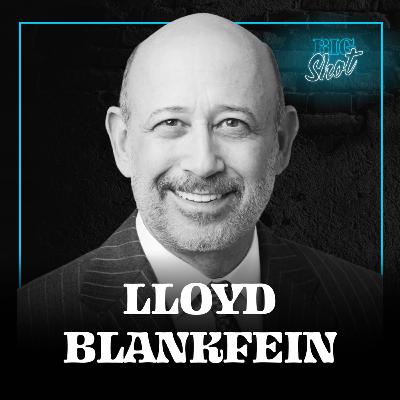
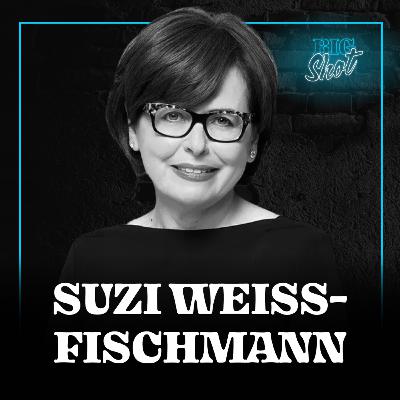
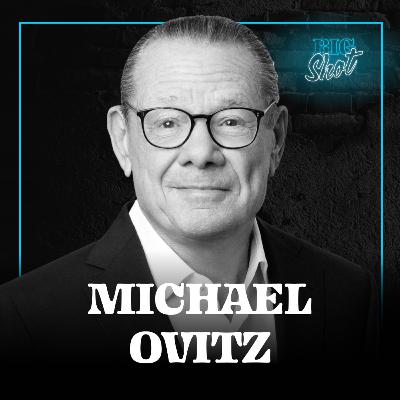
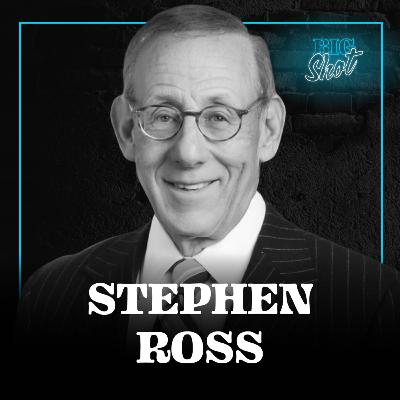
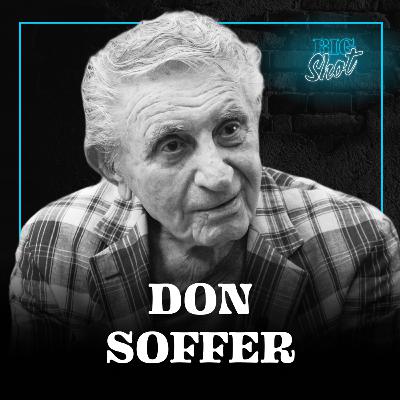
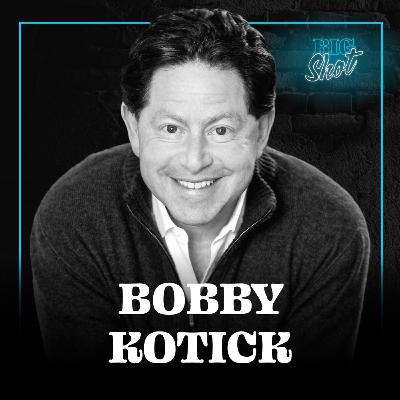
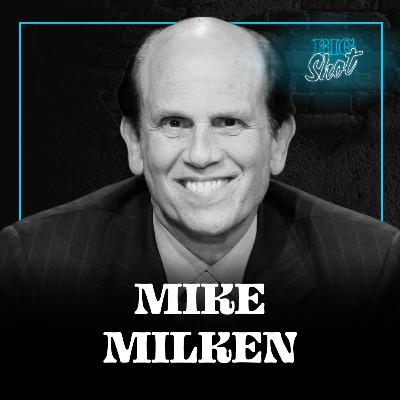
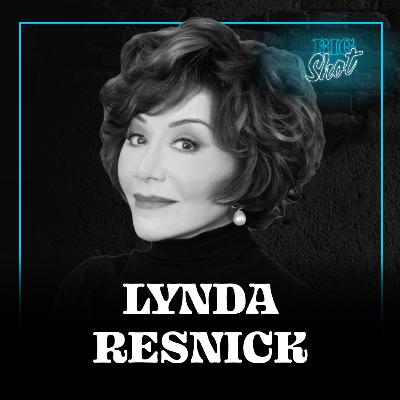
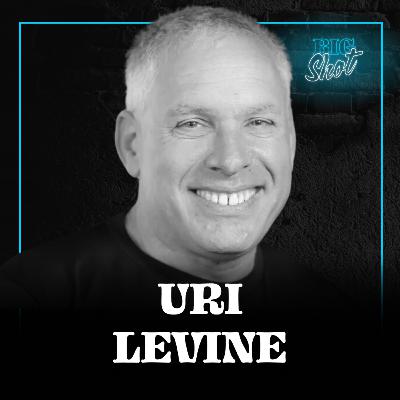














why are they talking at the same time.